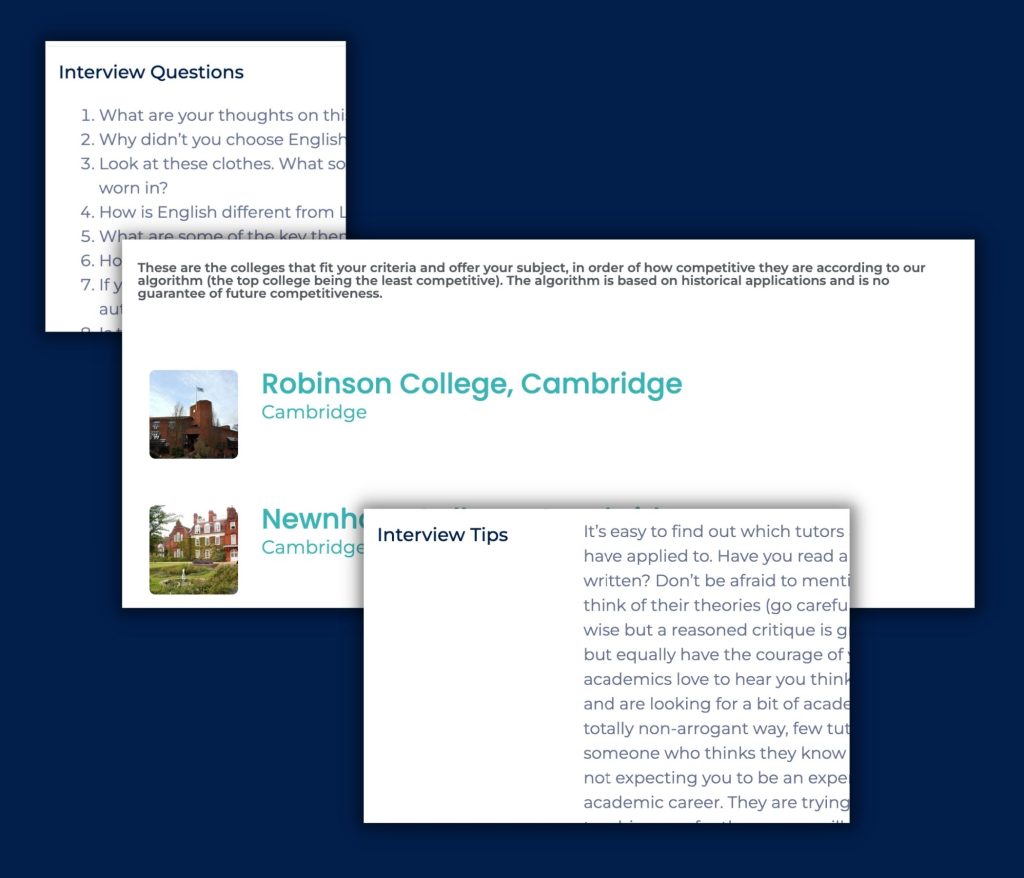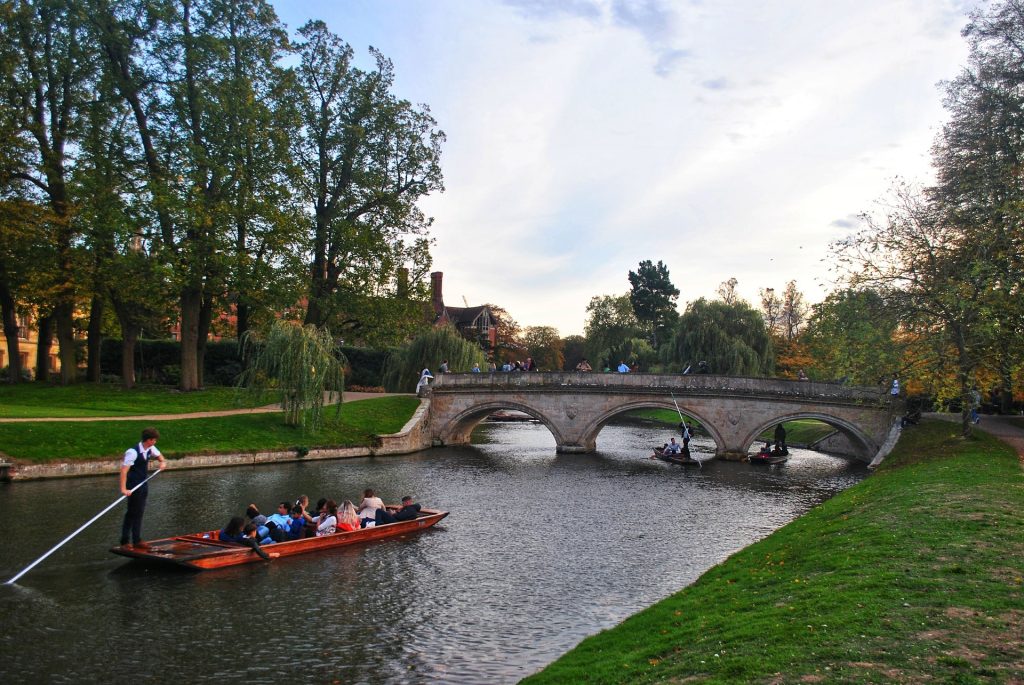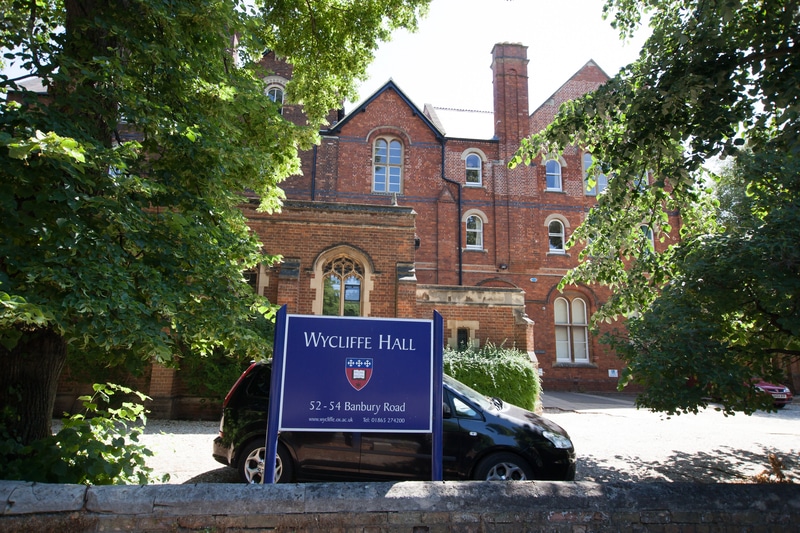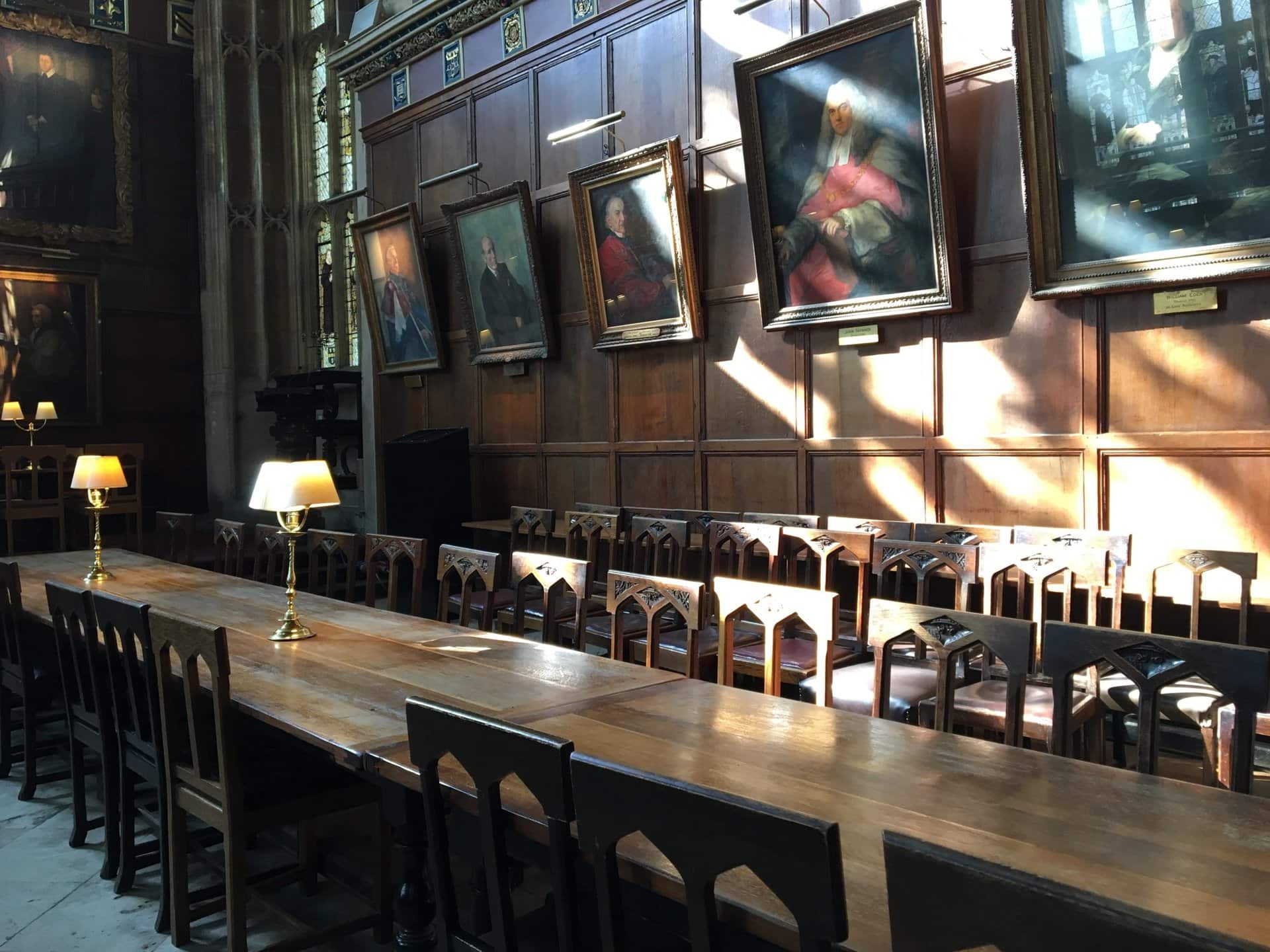
What is the best college at Oxford and Cambridge?
Its Personal...
That’s a little like asking which is the best city in the world, or what is the best rock band of all time. It depends on you… Choosing the best college for you at either Oxford or Cambridge can make the difference between a blissfully happy time at university and a time spent wondering if the quad really is greener at the other college. Your choice will also determine how much competition you face for an offer.
What does "the best" depend on?
Your definition of ‘best”, your personal preferences, and your degree choice. The heart of the matter is which is the best college for you.
How do you define the "best" Oxford or Cambridge college?
Is it the most prestigious? The least competitive to get into? The most academic? The most beautiful? Most of these factors are totally subjective criteria. King’s College, Cambridge is awe-inspiring, but some prefer the intimate beauty of a small college like Lincoln College, Oxford. How can you compare over 30 colleges at each university? Optimal Oxbridge offers an Optimizer that allows you to search for your best college match based on criteria that matters to you. The Optimizer also gives you a great deal of guidance about each variable. Do you know why the wealth of a college may matter? Is having access to a college library that is open 24/7 the advantage it may appear to be? The Optimizer will explain all.
Some factors that could help determine your perfect college include the size of the college or the distance from the centre. Academic performance, the wealth of the college, and the cost of accommodation are other ingredients in this swirling (and frequently bewildering) cauldron of choice. The Optimizer has 13 college choice variables for Cambridge and 16 for Oxford.
Let's talk factors...
Size Matters
Some Cambridge colleges have an undergraduate body that exceeds 550. The variety within the student body that such a size affords could be just what some crave. Others might wish for the close-knit community of a small college like Corpus Christi, Oxford with an Undergraduate body of around only 265. But beware! Colleges are hotbeds of gossip and the smaller the college, the more everyone knows about you. Optimal Oxbridge’s Optimizer warns you of the pitfalls you may face with each variable.
Location, location, location
Some colleges in Cambridge are considerably further out than others. Do you fancy getting fit walking or cycling up the hill to Girton or would you prefer the centrality of King’s or Clare? Are you an aspiring Medic who would like a college close to Addenbrooke’s Hospital such as Homerton? Is the choice of Homerton even a good one for Medicine? No, if you want a small, ancient college, and no if you want to apply for one of the least competitive colleges. The answer changes to “Absolutely”, if you would like a big Georgian college with a gender split of more than half women. Let the Optimizer help guide you around the maze of all these different factors and remove the stress associated with college choice.
Type of School
State School/Independent School intake is a political issue that can spawn debates well into the night. We cannot say whether you have a greater chance of getting an offer if you apply to a college that has a high State School intake if you’re state educated, but what we can do is guide you as to which colleges rank where in terms of the split and you can do with that information as you like. Some people would far prefer a college with a very high state school percentage (one Oxford college has a 95% state entrance) whereas others would prefer the opposite (there is a Cambridge college with an almost 50:50 split). Optimal Oxbridge also includes an International Student variable, in case that’s important to you.
Gender Divide
Would you like an all-female college? Cambridge has two (Oxford has none) colleges that are all female (and those who identify as female). Some Cambridge and Oxford colleges have a very low number of females (below 40%). The Optimizer has taken data from several different sources to ascertain the gender split in colleges because we know this is an important issue for some.
What does an Optimal Oxbridge membership include?
Use Optimal Oxbridge to learn more about the universities and their various colleges. Learn about all the courses offered by the university to find the best pick for you.
The model helps you narrow down your college choices by choosing the characteristics and qualities that are most important to you, helping you to discover your dream Oxbridge college.
Using data-driven research into trending Oxbridge admissions and predictive modelling (using various statistical methods), the Oxbridge College Optimizer guides you as to which of the colleges will fulfil your criteria as well as provide you with the greatest chance of an offer. These colleges are ranked, showing you which college you’re most likely to get accepted into for your course.
Our course specific interview questions give you an idea of what you may be asked for your chosen course. Our interview tips give you possible reading lists, topics to brush up on, and insider interview specifics like how long you can expect your interview to last, what the structure may be, and how many faculty members you can expect to speak to.
Written by Oxbridge alumni, we know the best insider information to increase your chance of an offer. No more scouring the internet only to find confusing information. Our insight on the structure of the application and interview process will help you feel confident in your decision of where to apply and how to increase your chance of getting in.

What's a Deer Got to Do With It?
Are you aspiring to be an undergraduate at a beautiful typical Dreaming Spires college? Peterhouse at Cambridge and Magdalen at Oxford have spires to spare and a deer park thrown in for free. One of them is fiercely competitive whereas the other is surprisingly lower down in terms of college competitiveness rankings. The Optimizer knows which is which. Perhaps you’d prefer a more modern college that feels less intimidating to you? What about accommodation? When I was at Oxford, I shared a bathroom with over 20 men and women. Things have changed but very few colleges have a large number of en-suites. Some colleges charge as much as £1,000 a year more than others for accommodation so do take a look at relative costs. On the whole, although this is a massive generalisation, the richer the college, the less expensive the accommodation.
Geek Rating
Academic Performance is another important element in college choice and it means different things to different people. If you want to be an academic or go for a job where academic prowess is highly prized, you need to aim for a First. Certain colleges are consistently towards the top of the academic charts in Oxford and Cambridge. At Oxford, Merton and St John’s tend to be regarded by undergraduates as the two most academic colleges. Merton even has the unfortunate (and unjustified) reputation as “the college where fun goes to die”.
We’ve crunched the data, however, and there’s a college that should be considered as equally or more academically successful according to the Norrington Table. The Norrington Table is possibly skewed towards colleges offering a higher proportion of STEM subjects (different Oxford colleges offer different subjects in differing proportions) and this is explained in detail in the Optimizer. Also, don’t forget that although you’ve worked extremely hard to get to the point of applying, you may not want to continue working quite so hard once you’re at university. There are plenty of careers that don’t require a First. Perhaps an academic hothouse doesn’t appeal, and there are plenty of other lovely colleges that could suit you.
Application is a Competition – What can you do to Increase your Chances?
What about competition? Does it matter? The universities argue (pretty vociferously – me thinks the lady doth protest too much…) that this is not the case. At Oxford in 2021, on a collegiate level, Worcester offered places to 8% of those who applied to Worcester whereas Wadham offered places to 15% of those who applied to Wadham, almost double the success rate. Why is this? Worcester received 1302 applications, considerably more than double Wadham’s 556 applications. Why? Is Worcester so much better? It probably comes down to marketing. Worcester has an extremely successful Outreach programme so it’s better known amongst applicants.
What about pooling? The universities claim that pooling balances out the differences in college popularity. 80% of successful applicants to Cambridge get into the college of their first choice. Would this be the case if pooling did away with the relative competitive differences? Surely the number would be far higher? Worcester only awards 9% of its offers to imported candidates because it doesn’t need to look much beyond its large college application pool. The universities are constituent bodies made up of different autonomous colleges and the universities cannot be seen to favour one college over another. Whilst I have no doubt (and have been told by members of various SCRs) that the universities work extremely hard to ensure that no exceptional candidate is left without a place, we believe that being aware of the Optimizer’s ranking system does help increase your chances.
There is more interesting analysis to be done at the degree/collegiate level. In 2021, Downing College, Cambridge had 152 applicants for 12 places offered. Peterhouse, Cambridge had 41 applicants for 11 places offered. Clare College received 81 applications for 6 places offered for HSPS (Human, Social and Political Sciences) whereas Homerton received 56 applications but offered 10 places.
Let our Optimizer help you find your college quickly with much less stress. We’ll eliminate those colleges that don’t work for you and show you the colleges that offer you the greatest chance of getting in!
Increase your chances of success today.
What do these stats mean? Can you hack the system using this data?
Yes….and no. A brilliant student will probably get an offer wherever they apply. A mediocre applicant is unlikely to get an offer from even the least competitive college. Where do you stand? Statistically speaking, you are probably at or near the top of your school in your subject but so are all applicants. Over 20,000 competitors applied to Oxford for an Undergraduate place in 2021 and just over 3,000 got offers. Nearly every one of those 20,000 is at the top of their school and you’re competing with them for your place. How can you stand out from the crowd? Optimal Oxbridge has a plethora of tips to help you stand out at the application, exam, and interview stage.
College competitiveness rankings should be another element of your college choice. Optimal Oxbridge’s Optimizer has taken data over more than 10 years and analysed it to create college rankings for every degree at Cambridge and Oxford. This has taken over 18 months and a team of Mathematicians (headed up by a Postgraduate Mathematician at Cambridge), Statisticians, Academics, and Data Scientists. We cannot guarantee you a place, but we can point you in the direction of a college that suits your personal preferences. We can tell you which colleges are more competitive, and which are less.
Would we suggest that you choose based on rankings alone?
Absolutely not, and we cannot stress this more. This is 3 or 4 years of your life. Don’t just choose a college because you think it’s easier to get into. Use the Optimizer to make a shortlist of those colleges that will suit you. Play with the variables. Don’t be too narrowly prescriptive with the early variables such as size and age of college as you will end up with an extremely narrow choice. Make a short list and then see which colleges are the least competitive for your degree and make an informed choice.
Some factors that could help determine your perfect college include the size of the college or the distance from the centre. Academic performance, the wealth of the college, and the cost of accommodation are other ingredients in this swirling (and frequently bewildering) cauldron of choice. The Optimizer has 13 college choice variables for Cambridge and 16 for Oxford.
Primus Inter Pares?
All colleges are great, but they are not created equal. Let Optimal Oxbridge help you find the one that suits you best and where you have the greatest chance of receiving an offer.
Our proprietary tech combines current data, predictive modelling, insider information and trending insights to give you the greatest chance of getting into the college that is right for you.








